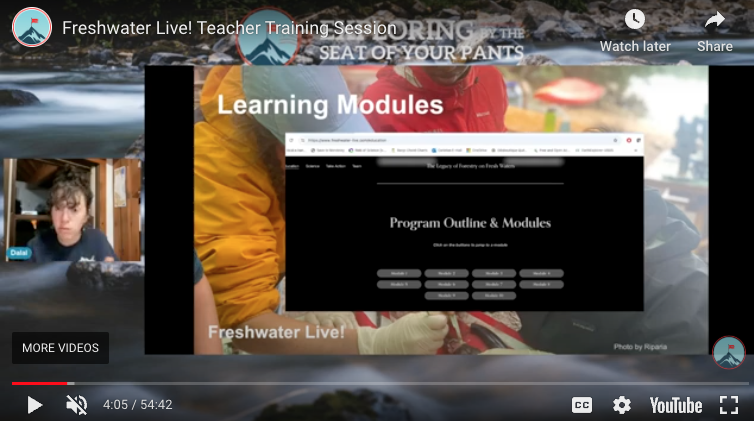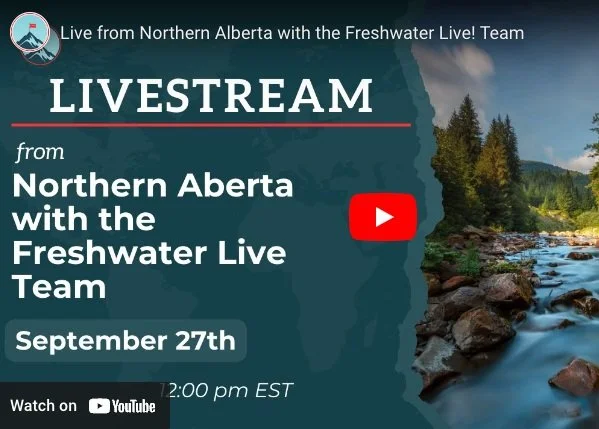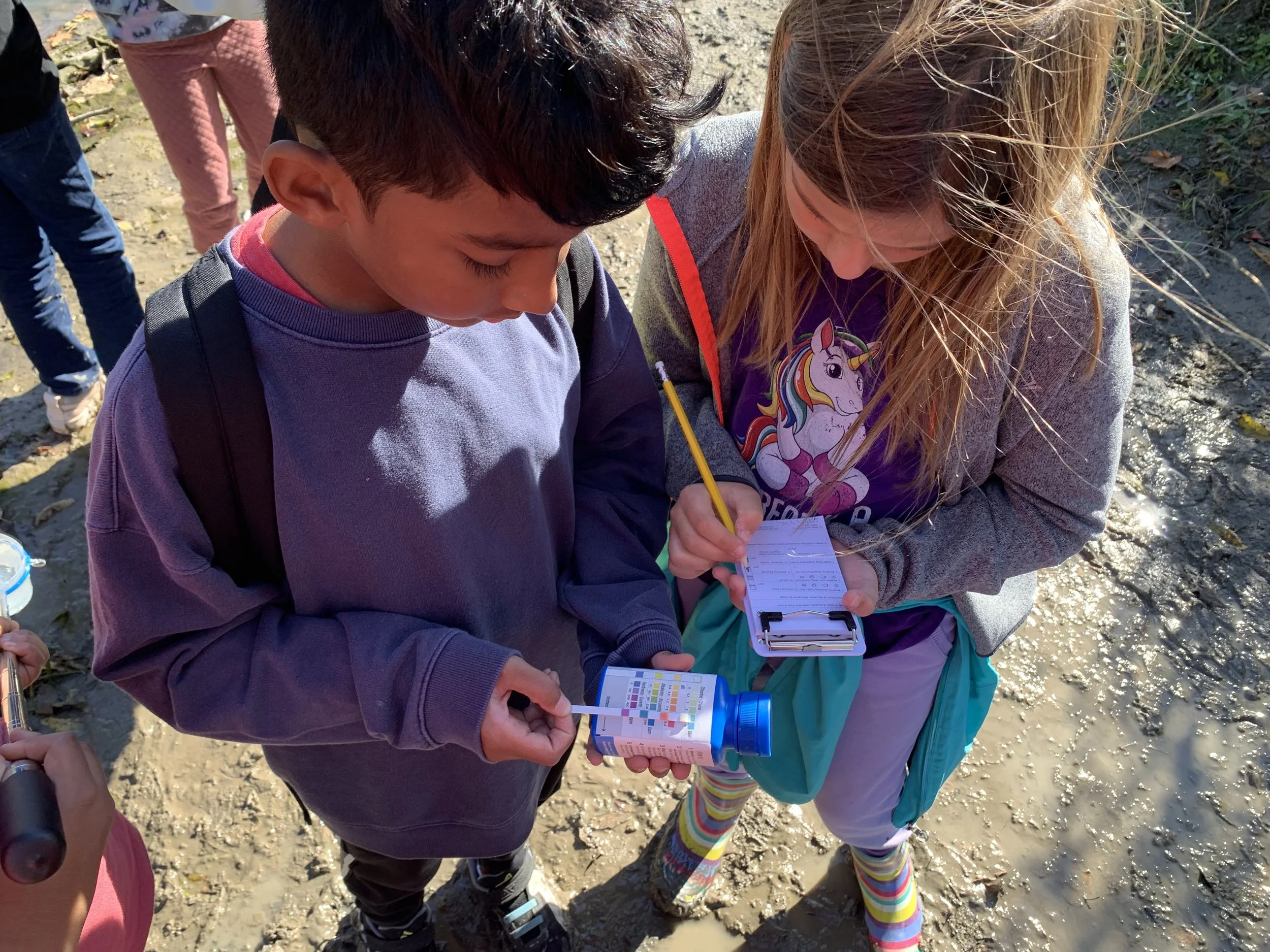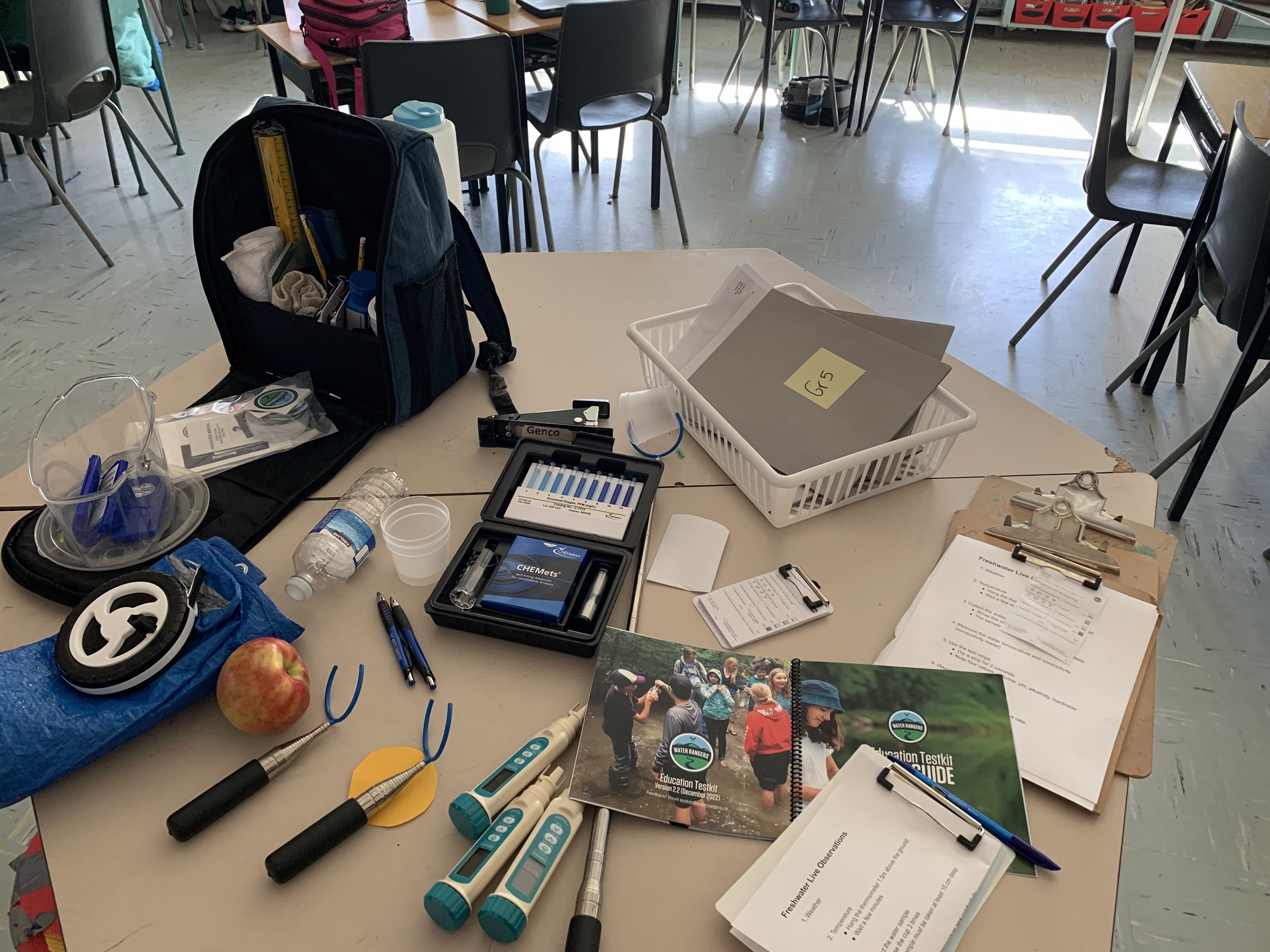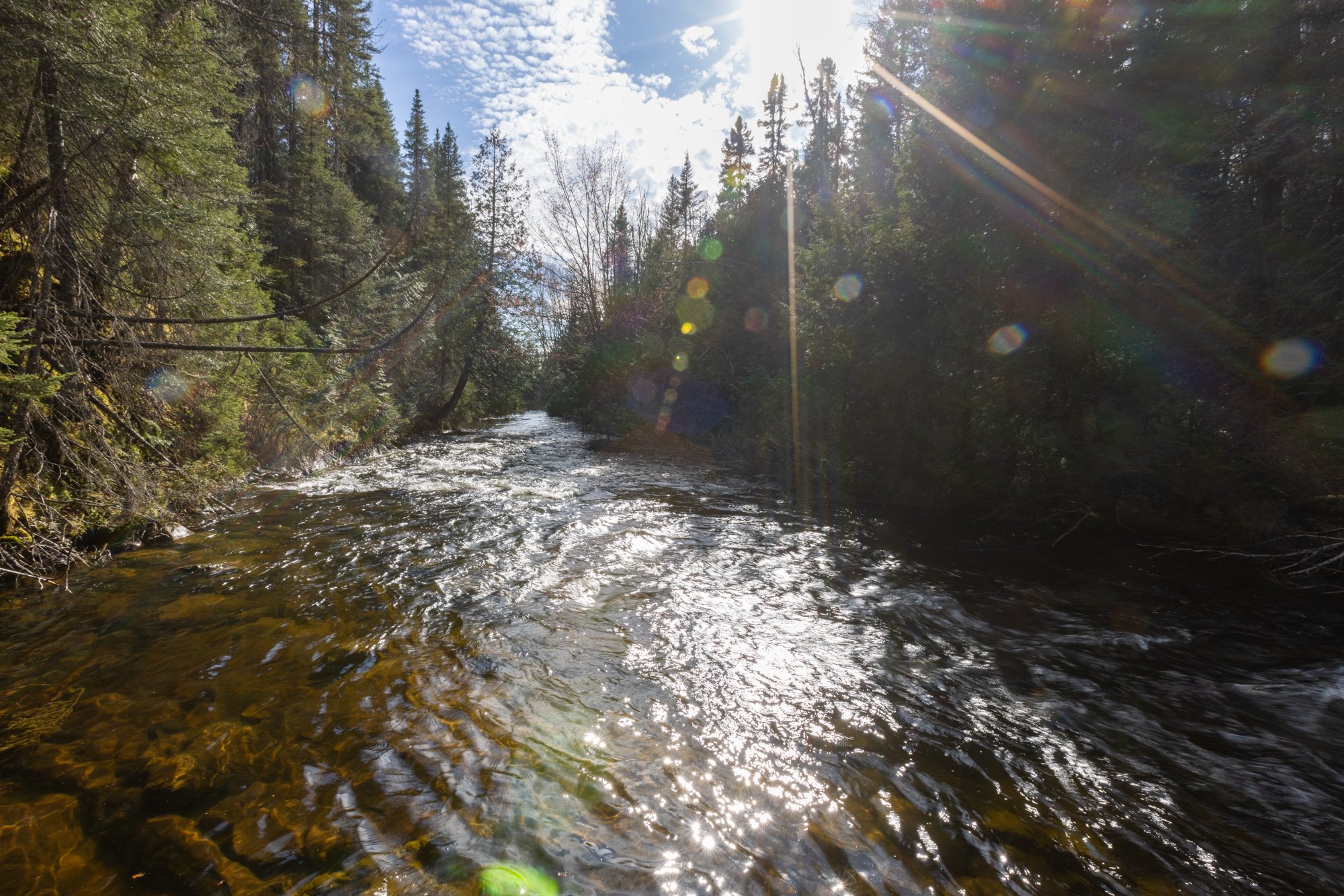
Education
Welcome to Freshwater Live!
This program combines online meet-ups, data collection in a local waterway, and the development of a classroom-led freshwater conservation action project to foster stronger relationships between learners and fresh waters. Any classroom can engage with the program by progressively following the ten modules outlined below, which will progressively become available between September 2024 and June 2025. The program was specifically designed with grade 6-8 students in mind.
We invite all teachers and students that engage in this program to fill out a pre-program survey before starting the program.
Program Modules
Click on the images to view the module
Module 1: Teachers training session
Module 2: Classroom intro session
Module 3: Virtual fieldtrip
Module 4: Get into the field
Module 5: Careers in freshwater conservation
Module 6: Teacher map making training session
Module 7: Develop a freshwater conservation action project
Module 8: Learner-led exploration of the project website
Module 9: Learn about the Legacy of Forestry on Fresh Waters project
Module 10: Freshwater conservation-action project share
